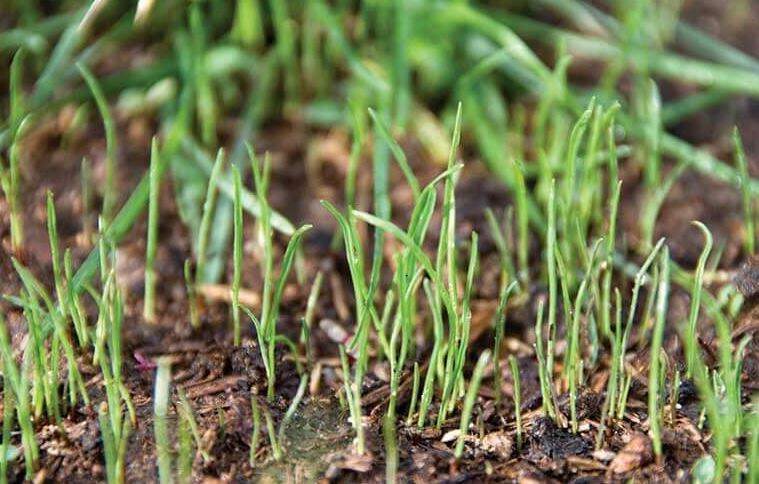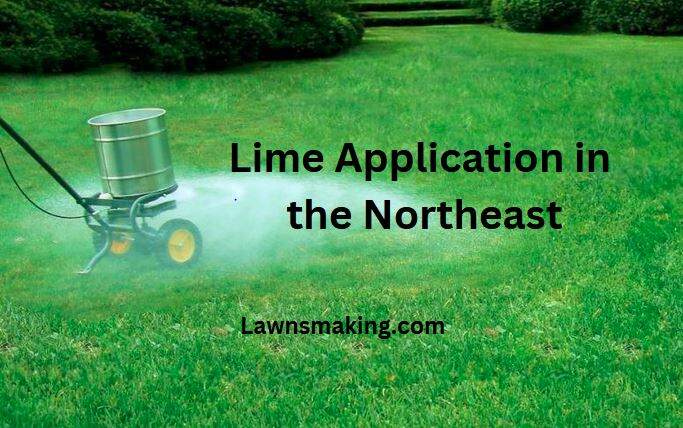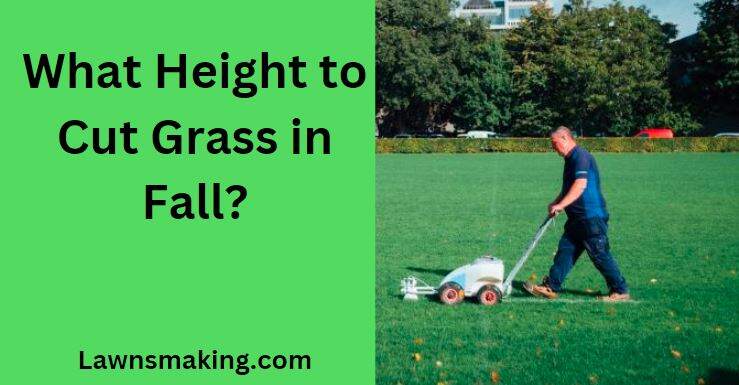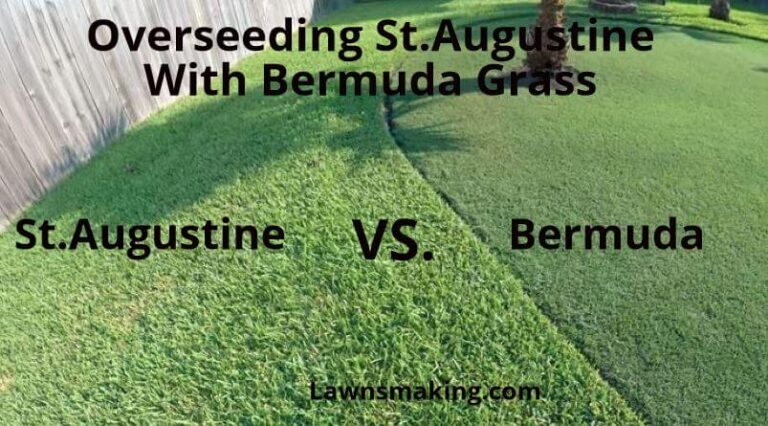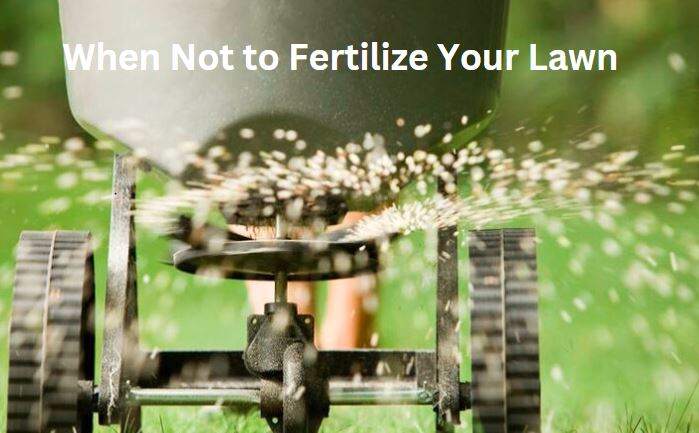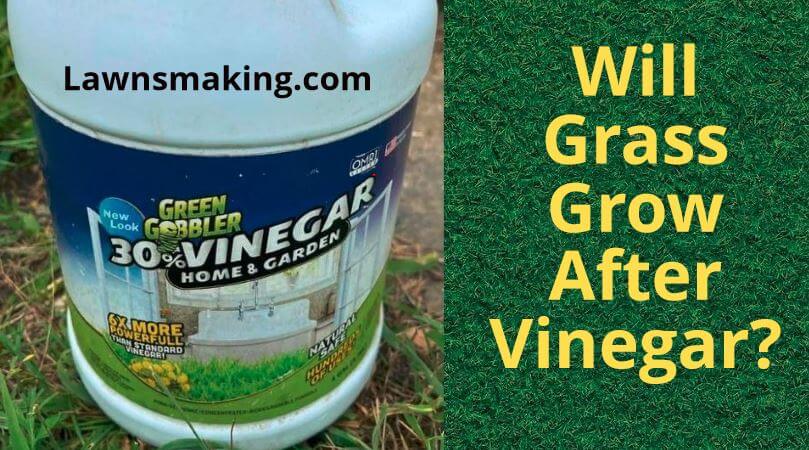
The aftermath of using vinegar on your lawn can be detrimental. Seeing your once lush grass withering leaves you in dilemma and concerned about the fate of your green landscape. Consequently, the question that first comes to mind is, “Will grass grow back after vinegar?
After vinegar treatment, grass will grow back after approximately one week. Although vinegar works within 24 hours, it can only permanently wipe out grass seedlings. Vinegar can’t kill mature grass, seeds, and roots.
In the rest of this article, I’ll dive into the details of using vinegar on grass and its effects. I’ll discuss the various types of vinegar to unveil their effect on grass and provide a guide for treating vinegar-stained grass. This will provide the best answer to your concern—Will grass grow back after vinegar?
Will Grass Grow Back After Vinegar? The Use of Vinegar on Lawns
In most cases, mature grass takes about a week to grow back after vinegar treatment. Whether you use household or horticultural vinegar, both have limited effectiveness, especially on seeds and mature roots. Still, vinegar is quite effective at wiping out grass seedlings with less intricate root networks.
Vinegar contains about 4 to 6% acetic acid as an active ingredient.
Acetic acid is a desiccant effective at burning and drying out anything it comes into contact with.
Because most vinegar treatments merely involve spraying the leaves and not necessarily saturating the ground, only the grass leaves die. The site may seem bare for a while, but the intact roots and seed will sprout back.
Types of Vinegar and Their Effect on Grass

Vinegar is effective at killing plants upon contact. It is an acid that works by rupturing the cell walls and dehydrating them.
Generally, it impairs normal growth by destroying the leaves. Any spillage on your turf can impair its growth and aesthetics for weeks.
There are two main types of vinegar that have varying effects on grass. Generally, one is marginally more potent than the other, hence slightly more effective at killing weeds.
Household Vinegar
Household vinegar is widely available in local stores and supermarkets. It is safe for consumption and contains an acetic acid concentration of around 4 to 6%.
Although household vinegar is pretty effective at killing grass and weeds in the seedling stage, well-established plants typically survive an application.
Vinegar barely destroys their root network, allowing them to sprout and regrow once the vinegar disintegrates.
There are various types of household vinegar, the most common being white vinegar and apple cider vinegar. Both contain an acetic acid level of 4 to 6%, meaning none is superior to the other at killing grass.
Horticultural Vinegar
Horticultural vinegar is the more potent stuff with a higher concentration of acetic acid.
Compared to household vinegar, which has roughly 5% acetic acid concentration, horticultural vinegar has 20% acetic acid. It is generally more effective at killing grass and weeds.
The higher acetic acid concentration also means that horticultural vinegar is more corrosive and tricky to use. It can burn your eyes, skin, and mucus membranes, making it crucial to be extra careful during applications.
Here are some safety tips to keep in mind when using horticultural vinegar:
- Wear a thick pair of gloves to protect your hands from nasty burns
- Keep your face mask on throughout the application (dispose of it afterward)
- Wear protective eye goggles during applications
- Do not touch your face or other bare parts of your body
- Spray the product only on targeted areas (it can corrode concrete, wood, and some metals)
The table below summarizes the concentration of acetic acid in the different types of vinegar:
| Type of Vinegar | Acetic Acid Concentration |
| White vinegar | 4 to 5% |
| Apple Cider Vinegar | 4 to 5% |
| Horticultural Vinegar | up to 20% |
Does Vinegar Kill Grass Seeds?
Vinegar does not kill grass seeds. The treatment only works for leaves because the vinegar can make contact with them. However, vinegar can’t kill grass seeds because it can’t penetrate their protective coats.
Vinegar must touch a part of the plant to work as a herbicide. The product kills any plant it comes into contact with by dehydrating it and creating burns on the leaves.
However, grass seeds have protective coats that make them hard to permeate. Therefore, any grass seeds that fall on the soil will germinate under the right conditions.
5 Uses of Vinegar on a Lawn
Household vinegar is versatile and commonly used for cooking and making tasty salad dressings. But did you know it has a ton of other uses on lawns?
Here are some of the most common uses of vinegar on lawns:
- Removing ants: Spraying vinegar on anthills will make the ants move out.
- Freshening cut flowers: Dissolving sugar in vinegar can keep your cut flowers fresh for long.
- Brightening bricks: Vinegar can help enhance the aesthetics of dingy-looking bricks by removing calcium buildup.
- Flea Killer: Vinegar can help eradicate fleas in your yard (avoid spraying on areas with plants).
- Cleaning rusty lawn tools: Soaking rusty or sticky lawn tools in vinegar overnight will make them as good as new.
Does Vinegar Kill Grass Roots?
Vinegar does not kill grass roots because plants don’t absorb acetic acid the same way they absorb commercial herbicides. Both household and horticultural vinegar only affect the leaves and effectively eliminate seedlings. The complex root network of established grass will remain intact.
Some grass species, especially crabgrass, quackgrass, and nutsedge, have complex root networks. Often, vinegar spray does not go deep enough into the soil to saturate the entire root system and kill it. The intact roots allow the grass to regrow under the right conditions.
Even if you saturate the soil with vinegar, grass roots will likely remain pristine because the soil quickly neutralizes acetic acid. This leaves little chance of the acidic stuff reaching and killing the roots.
Will Diluted Vinegar Kill Grass?
Dilute vinegar cannot kill grass. Although it’s less effective than highly concentrated vinegar, it can still cause some damage to parts of the plant. If you accidentally spill diluted vinegar on your lawn, you can counteract the effects by saturating the ground with clean water.
Vinegar is acidic with a pH of 2 to 3. Although Acetic acid (CH3COOH) is generally classified as a weak acid, it can do immense damage to plant leaves, whether in concentrated or diluted form.
As expected, dilute vinegar is less potent than products containing 5 to 20% acetic acid. Still, the acetic acid will cause damage by burning substantial portions of the leaves and ultimately making the grass appear severely damaged or superficially dead.
However, the intact roots will ultimately allow the grass to regrow in approximately one to two weeks.
After How Long Will Grass Grow After Vinegar?
Grass will grow back in one to two weeks after vinegar treatment. Vinegar breaks down in two to three days and becomes ineffective, allowing grass to grow back. Although the leaves may be brown or yellow, the virtually untouched roots will allow the plant to grow back.
Generally, grass roots can grow 4 to 6 inches (10.16 to 15.24 cm) deep into the soil. Some grass species have roots that reach depths of 2 to 3 feet (60.96 to 91.44 cm). Although vinegar can effectively kill the plant leaves, spraying the liquid will likely do little to damage mature grass roots that deep.
Typically, grass will grow back in one to two weeks following a vinegar treatment. If the weather conditions are favorable, new grass sprouts may even start to appear in just 7 to 10 days.
How Long Does Vinegar Last in Soil?
Horticultural vinegar can last in soil for 30 days, especially if you saturate your lawn thoroughly. However, regular household vinegar can only linger in the ground for two to three days. It may even break down faster and lose its potency if it rains or you water your lawn.
The duration vinegar remains in the soil highly depends on the type of vinegar in question. Horticultural vinegar is up to 4 times more potent than household vinegar and remains in the soil longer.
Regular vinegar is not as potent as horticultural vinegar. Spraying the product on your kitchen garden will introduce roughly 5% acetic acid concentration to the soil. This should break down the weed in 24 hours and linger in the soil for up to three days, provided it doesn’t rain, and you don’t water your lawn.
Can You Plant Grass After Spraying Vinegar?
You can plant grass after three to four weeks following a vinegar treatment. Vinegar breaks down quickly and does not remain in the soil for over three days. After disintegrating, it becomes ineffective, although its effects on the soil PH can linger for much longer.
Pouring vinegar on your lawn will lower the soil PH. However, household vinegar is a weak agent and will only mildly affect your soil’s PH.
On the other hand, the effects of horticultural vinegar can alter the soil PH for up to four weeks. This is more so if you saturate the ground with the product to help eliminate tough weeds.
If you want to plant fresh grass after spraying vinegar, we recommend doing a soil PH test first.
Does Vinegar Kill Weeds Permanently?
Household vinegar can kill some but not all weeds permanently. Since the acetic acid does not reach the root system, it is harder for the product to kill tough perennial weeds. If you want to wipe out weeds effectively with vinegar, you have better odds of success using horticultural vinegar.
The effectiveness of vinegar as a herbicide highly depends on the weed species you are targeting and their life stage.
Weeds like ground ivy and broad-leaf weeds like plantain are quite susceptible to acetic acid and will often not regrow after multiple vinegar treatments. Also, most weeds in the seedling stage die permanently after vinegar treatment.
On the other hand, vinegar provides excellent initial results on tough weeds like quackgrass. The weed has an aggressive root system and will often regrow after a few weeks following treatment.
Vinegar can provide short-term control at best, whether you are targeting weeds or grass. Although three applications can kill some weeds permanently, others, especially those with intricate root systems like dandelions, even survive multiple applications.
Taproot weeds are easier to eliminate using commercial formulations with 20% acetic acid or herbicides like glyphosate.
When using higher concentrations of vinegar, multiple applications have an 85 to 100 percent chance of killing the weeds, irrespective of their growth stage.
How to Treat Vinegar-Stained Grass (A Guide)
If you accidentally spill vinegar on your grass, don’t panic. While you cannot reverse the damage already caused by the spillage, there are a few tricks that could work to save your grass from death.
To offset the effects of vinegar, here is what you should do:
- Saturate the grass and ground with clear water mixed with some baking soda
- Pour agricultural lime on the site to help neutralize the effects of vinegar
- Test the soil PH and reseed if your lawn has seedlings (they are unlikely to survive a vinegar treatment)
Final Thoughts
Today, more and more lawn owners are aware of the dangers of conventional herbicides. This has led many to consider safer alternatives, especially those that cannot pose harm to their young kids or pets.
If you have heard people hailing the effectiveness of vinegar as a weed killer, you’ve probably wondered, “Will grass grow back after vinegar?”
Fortunately, grass grows back after vinegar treatment. The intricate root system of grass protects them from being permanently killed by vinegar. Therefore, only grass leaves die after vinegar treatment.
For the best recovery of your lawn, ensure to saturate the affected areas with water.
